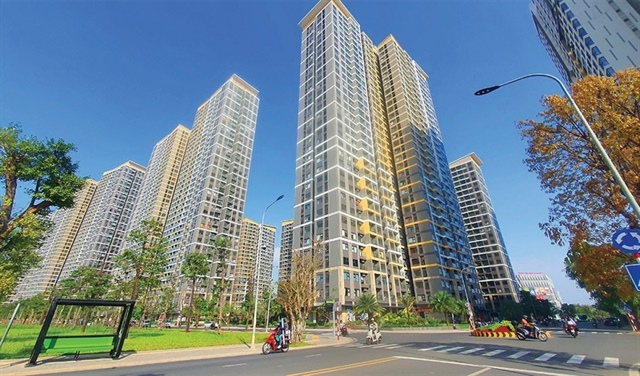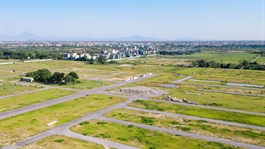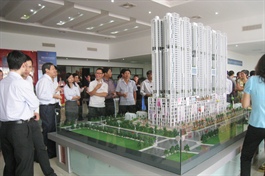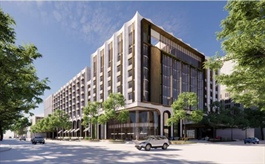Work remains to put land parcel division back on track
Work remains to put land parcel division back on track
Viet Nam needs to find more radical solutions to prevent the rampant division of land parcels for sale for the healthy development of the real estate market.

According to the Ministry of Natural Resources and Environment, the division of land parcels and conversion of land for sale has been taking place rampantly and illegally in many provinces and cities in recent years, which, together with speculation activities, caused a land fever and market disturbance.
The consequences are severe as land prices inflate, farmers do not have land for cultivation and planning is disrupted.
A report by the Ministry of Construction pointed out that small investors were collecting residential land, agricultural land, and land for perennial crops in many provinces, including Dong Nai, Binh Phuoc, Ba Ria – Vung Tau and Dak Lak then divided into plots for sale, causing threats to the real estate market.
To prevent rampant and illegal land parcel divisions, the Ministry of Natural Resources and Environment in late August asked provinces and cities to enhance land management and strictly handle the unlawful division of agricultural and forestry land.
Many provinces and cities tightened the management of land parcel division and the issuance of land ownership certificates, even temporarily halted the handling of procedures for the division of land parcels to cool down the increasing land fever.
Ha Noi People’s Committee recently asked for inspections to be carried out to prevent and strictly handle cases of levelling hills, mountains, lakes, ponds and riverbanks, which are then divided into plots to sell for profits and illegal construction on agricultural land.
The capital city in late March suspended the receipt and handling of administrative procedures for the division of agricultural and non-residential land parcels. At the same time, a draft regulation about conditions for land division in the capital city was being developed.
The suspension, coupled with the imposition of a transfer tax on market prices, caused land transactions on the outskirts of the capital city to drop significantly. A municipal People’s Committee report showed that the budget revenue from houses and land was low in the first eight months of this year, equivalent to 41.5 per cent of the plan.
Other provinces also took action to tighten land division, such as the southern Dong Nai Province, which, starting this October, increased the minimum area of agricultural land before division from 1,000 sq.m to 2,000 sq.m.
Radical solutions
Tightening land parcel division was a short-term solution to cool down the land fever. However, Viet Nam needed to raise more radical solutions to prevent speculation and ensure the healthy development of the real estate market.
Can Van Luc, a member of the National Financial and Monetary Policy Advisory Council, said that tightening the land parcel division was just a temporary solution. The long-term solution should be to develop a tax instruction to prevent land speculation, Luc stressed.
The land division should not necessarily be banned but must comply with planning, Luc said.
Dang Hung Vo, former Deputy Minister of the Natural Resources and Environment, said that the low asset tax rate was one of the reasons for speculation which caused land fever, formed a bubble and inflated housing prices.
The consequence was heavy, Vo said, pointing out that high land prices would undermine national competitiveness, cause difficulty in attracting investment, lead to failure in meeting the demand for affordable housing and loss in regulating population density and weigh on the infrastructure system.
Developing asset tax was necessary, coupled with amendments to the Law on Land, Vo said.
Viet Nam should also raise policies to encourage people to put the money into production and business rather than in property assets to earn profits from price increases, he added.
Nguyen Van Dinh, Deputy President of the Viet Nam Real Estate Association, states that every locality must have land use planning with a long-term vision and make it public, which would help prevent speculation.
Imposing taxes on people who own more than one piece of land or house or leave their property deserted should be considered, Dinh said.
The land was a limited resource and played an irreplaceable role in urbanisation and socio-economic development, Tran Kim Chung, former Deputy Director of the Central Institute for Economic Management, said, adding that proper use of land resources would not only help attract investment but also increase budget revenue.
























